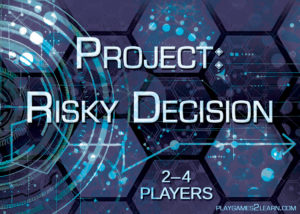I recently joined PQA as a quality detective and, being a novice tester who has just entered the field of testing, I would like to share some of my thoughts based on my experience from the past couple of weeks. I have organized my ideas into this question and answer article. Of course, the list of questions I came up with is far from complete; however, I hope this short article at least offers an interesting leisure time reading about software testing from the perspective of a new tester.
Does the “real” world of software testing correspond to your expectations, or what you thought it would be?
I am currently working as a software tester focused on testing webpages and digital content. Although I studied electrical engineering, and did have some limited exposure to software testing through previous research projects, I really did not know that there were so many things associated with software testing. Like many other people, prior to entering this field, my view of software testing or quality assurance was that it simply consisted of debugging a piece of code and performing some scripted testing tasks that ensured the piece of code worked. Now I understand that tasks such as this are really the responsibility of a software developer. In the “real” world, software testing means much more. I think one of the reasons that the role of a software tester is being viewed in this way is that the industry itself has not really defined the standard of becoming a good tester. People are not trained in school to become software testers after graduation. Software testing requires a broad knowledge base and years of experience and practice. It is easy to produce a bug, but it can be very hard to catch it. In reality, a software tester is a critical thinker. Because a piece of software is an intangible product, a software tester needs to be very familiar with not only the function of the software but also its business requirements. While ensuring all functions work properly, a software tester needs to think beyond the software he/she is testing. He/she needs to consider how this piece of software is used in the “real” world and come up with testing scenarios that reproduce those situations. There are many techniques, for example exploratory testing, that can help testers achieve this. Last but not least, I was surprised to find out that soft skills, such as communication and interpersonal skills, are in some ways more important than the technical skills to a tester, especially for a service company like PQA. Although there are many challenges ahead, I believe I will enjoy this continuous learning experience.
Is what you’ve done so far more or less technical than you expected?
Currently, most of my work is about testing websites. Although the testing itself does not require a lot of technical knowledge, it does, however, need the tester to have great attention to detail. Since I am new to the field of software testing, the tasks that have been assigned to me are less technical than I expected. However, while I perform daily testing tasks, I am also learning different testing techniques and testing tools, such as xBTM, exploratory testing and agile testing. I am working to ensure quality in the role I perform so that I will be in a better position to contribute to improving the quality of a product in the future.
How do you see the relationship between developers and testers?
Developers and testers should be working as a team. All members of the team need to have a clear understanding of the product and their responsibilities. Everyone should work toward a common goal, which is to improve the quality of a software product.
What “bugs” or issues have you encountered yourself when using software?
Some webpages tend to have a lot of Flash animation contents. This often slows down the speed of a browser and, in many cases, it causes the browser to crash. Technically, it is not a bug from the perspective of the website design. However, in reality, it does result in unhappy user experiences. For me personally, such websites really give me a hard time when browsing through its content, and I would avoid visiting the site again in the future if possible. Thus, it’s a tester’s responsibility to consider all the scenarios that a product would be used for in the “real” world. Another issue that I have encountered was related to memory leak. Some computer games run very smoothly at first; however, over the time, they start to take over too much system memory without dynamically giving back the unused ones. I found this very annoying because it slows down the system and makes the gaming experience quite unpleasant.
How are some of your newly acquired skills and knowledge applied in your day to day living, and what things are you doing to become a better tester?
I believe all the skills I have acquired as a tester are transferable to my day to day living. A tester always looks for things that can be improved. I am able to use some of the testing tools to become a better organizer and planner in my life. For example, I can identify my goals in life and outline the steps to achieve them. Currently I am still in the learning stage, and I want to sharpen my testing skills so that I can become an outstanding service deliverer in the near future.



